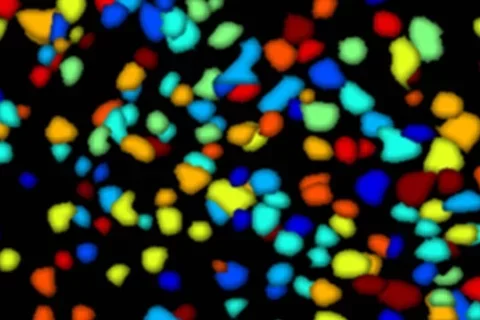Senior moment? UCLA study could help brain recapture memory connections

UCLA neuroscientists artificially stimulated neurons to help the aging brain recapture connections between related memories. Photo credit: Daniel Aharoni/UCLA
It’s no secret that our memory worsens as we grow older. Now a new UCLA study conducted in mice reveals how aging weakens the brain’s ability to link related memories over time.
Published May 23 in Nature, the findings also suggest a possible intervention for people suffering from age-related memory problems: The researchers devised a way to reverse the damage and boost the middle-aged brain’s ability to recapture lost connections between memories.
UCLA neuroscientists Alcino Silva and Denise Cai used a cool miniature microscope that opened a window into each mouse’s brain. A powerful lens on the tiny, head-mounted device illuminated the animals’ neurons firing as the mice moved freely in their natural environments.
The researchers tested in young and middle-aged mice whether the brain linked memories of experiences separated by five hours versus seven days. In a nutshell, they discovered that memories of two experiences separated by five hours were recorded by the same neural circuit in young mice, but not in the older mice.
Based on an earlier finding by the Silva lab, the team knew that a cell is most likely to encode a memory when it’s aroused and ready to fire. Neuroscientists refer to this condition as excitability.
“The excitable brain is already warmed up,” explained Silva, a professor of neurobiology and psychiatry at UCLA’s David Geffen School of Medicine and Semel Institute. “It’s like stretching your muscles before exercise or revving your car engine before you drive.”
Suspecting that aging weakens neurons’ ability to fully excite, Cai used a biological tool to excite neurons in a tiny part of the hippocampus — the memory center of the brain
The technique completely restored the animals’ ability to link memories across time.
Cai and Silva are currently testing an FDA-approved drug’s effect on the ability of middle-aged mice to connect memories.
Called a Miniscope, the miniature microscope was developed by UCLA with funding from the presidential BRAIN Initiative and the Geffen School.



